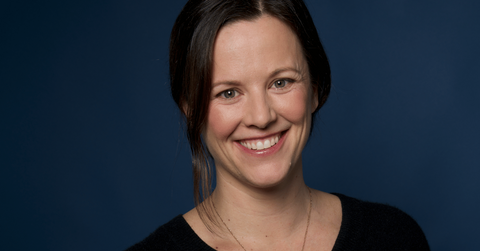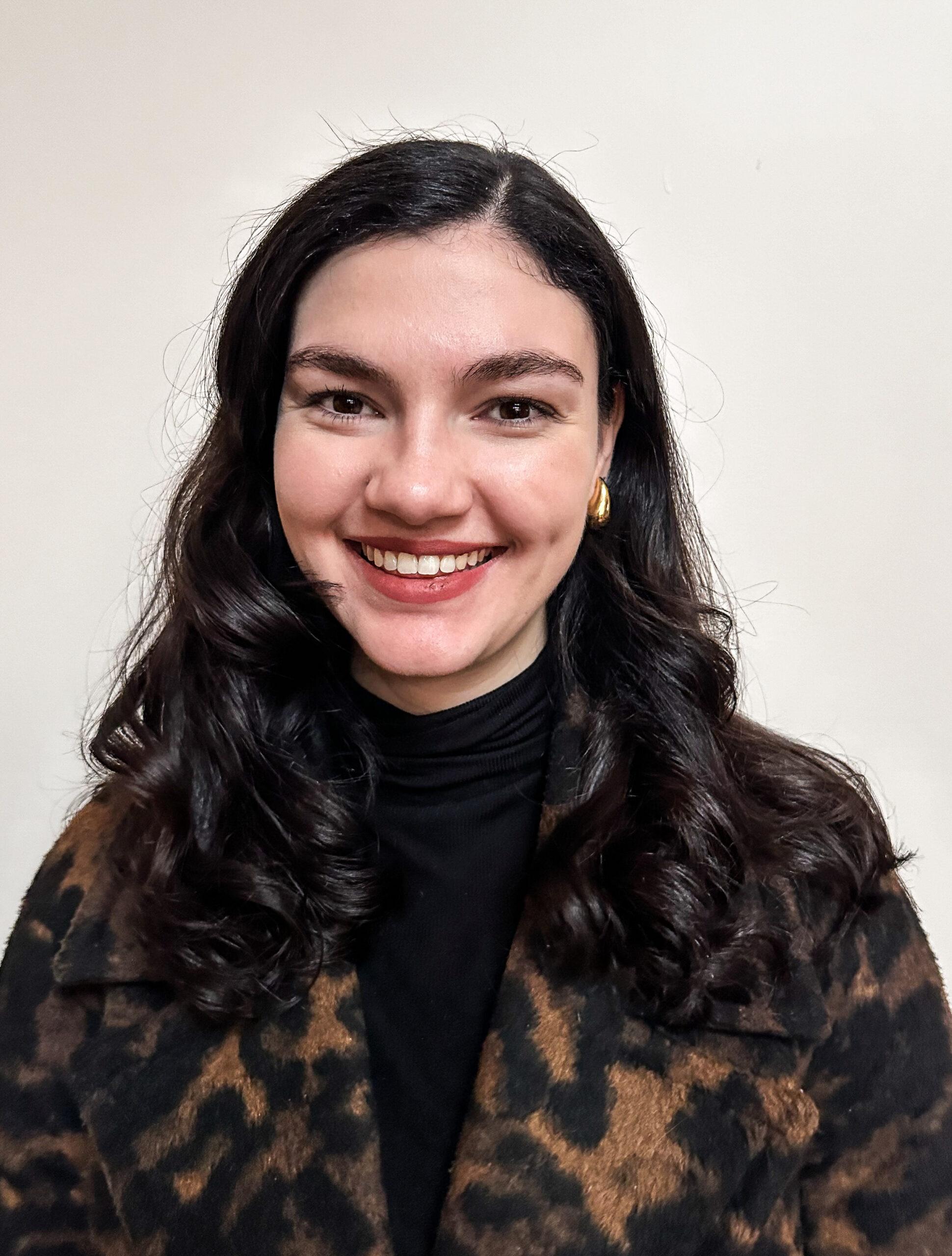From NBA documentaries to science journalism, Danielle Elliot’s career path has been anything but linear. In fact, it’s a journey of discovery that has offered personal insights into her own neurodivergent mind, which entails both the thinking process of each next career move and actions taken once in the role. Now, as host of Climbing The Walls, a podcast giving a full scope into the world of ADHD, Danielle is exploring why ADHD diagnoses among women have surged since the pandemic and having candid conversations about moving through life after a diagnosis.
Drawing from her background in health and science journalism, combined with her own experience of late-diagnosis ADHD, Danielle highlights these stories by bringing on mental health experts and other women with their own diagnosis to spark a deeper discussion through other individual journeys and medically backed insight. In a conversation with Her Agenda, Danielle shares how understanding ADHD has transformed her career perspective and why she’s passionate about expanding the conversation beyond medication to holistic approaches.
Her Agenda: I’d love to start out with an overview of your career journey, what it’s entailed so far, and how it has shaped you today.
Danielle Elliot: I started out with NBA Entertainment. I was in their documentary unit, so we were working on things about all of the NBA teams.
And then from there, I started doing two different things. I started writing for local news websites through a startup called Patch.com. And then I also started working with NBC Olympics and the USTA for all sorts of sports production. I did that pretty consistently for a few years.
And then I went into content with a couple of different Fortune 500 companies. And then from there, I went to grad school. I studied health and science journalism, and I was the science editor at CBSnews.com. I was a sports editor at Yahoo Sports.
I freelanced writing long-form science and health pieces. And then I became a travel editor for a year. Then I went to the Atlantic and was on the branded content team for two years.
Then, I went back to documentary television and worked on a couple of series for two years. Now, I continue to produce documentaries and podcasts. I still write.
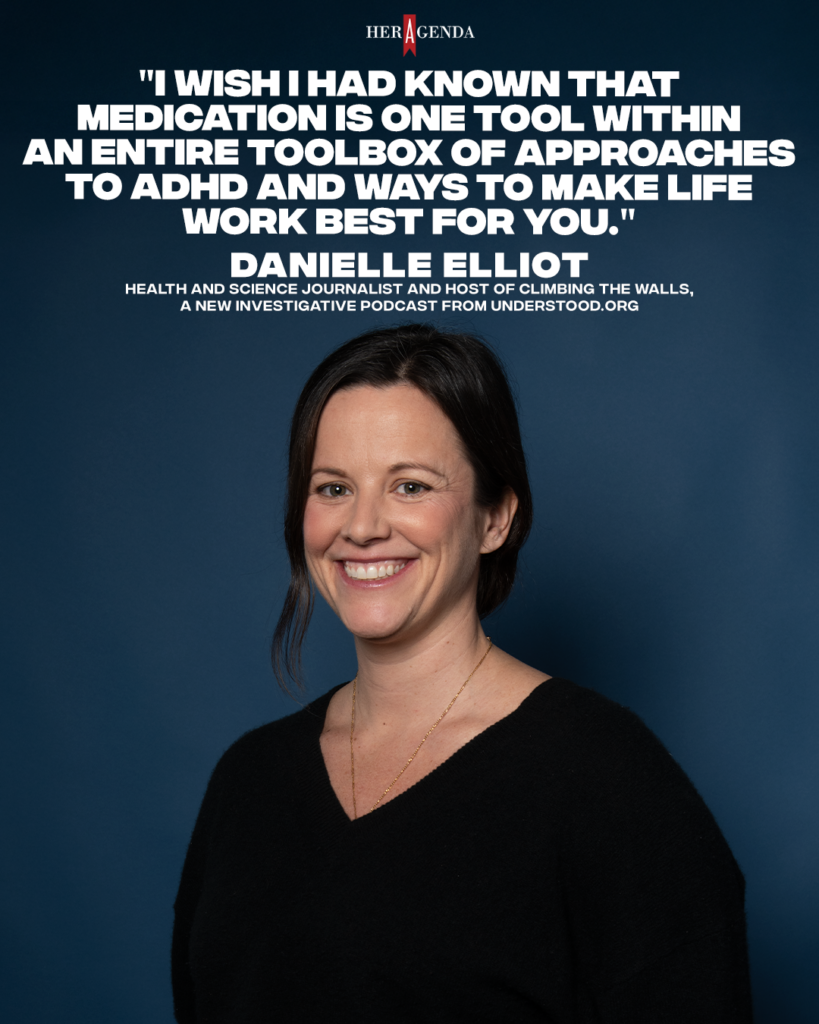
Her Agenda: You’ve described yourself as juggling a million things at once. And with your background in health and science journalism, how has that shaped both your personal and professional understanding of ADHD?
Danielle Elliot: When I was first diagnosed, I would say looking back at what I had done, because I always felt like even in everything I just described, it was sort of a lot of lateral moves, but I wasn’t moving up in a career. I was doing a lot of entry-level things for almost 10 years.
Once I understood ADHD, it was more so that understanding ADHD helped me understand what I had done throughout my career, rather than vice versa. Just being able to look at it, I can see how much I enjoy jumping around and how much I enjoy new challenges and new stories all the time.
I love working on [a] series because you get deep into them. But within a year or two, you’re moving on to the next subject. So it’s helped me understand that with ADHD, it’s not that you can’t focus. It’s not that you can’t stay organized; it’s that you have to be interested in something to be motivated enough to keep organized, to stay focused, to get things done.
And that’s helped me. It’s given me a lot more, I guess you could say self-forgiveness for how much I jumped around when I was younger. It’s helped me figure out how to channel that and channel what my brain does best as I’m moving forward.
Her Agenda: Can you tell me how you got involved with Understood.org and why you chose to do the podcast Climbing the Walls?
Danielle Elliot: When I was first diagnosed, I had a lot of questions as I got into episode one of the podcast. Something I’ve always done is just start asking questions and trying to figure out kinds of big cultural phenomena. And this felt like one of them because so many people were being diagnosed. And I started working on a book proposal.
And the stories were rich in the women’s voices. It just felt so important that their voices be heard more so than chipping them into a book. And it just so happened that Understood.org wanted to make a narrative podcast because I certainly was not the only person asking why women, why now? Understood.org was also looking to answer those questions.
And it just happened to line up that someone I had worked with previously introduced me to someone she had worked with previously, who worked at Understood.org. And it all came together perfectly.
Her Agenda: Why do you think conversations about women and ADHD have been historically underrepresented and how is that changing now?
Danielle Elliot: These stories have been underrepresented for a whole host of reasons. One of the simplest ways to explain it is that there weren’t a lot of women in positions to do well-funded research studies. And no matter how much anecdotal evidence we have, or even clinical evidence, psychiatrists and therapists are talking to patients and noticing things when treating them in a clinic.
We didn’t have research. And if the information isn’t rooted in research, it’s not going to be considered science in the same way.
That’s one of the initial reasons. Then it has to do with how much experts believe women, honestly, and listen to women. And we now have women in those positions who are doing the studies and are moving this along.
There are many men who have also studied ADHD. But I think that to me, it’s really also social media. It’s the ability for information to travel faster and further to more people than ever before, like an ability to overcome the gatekeeping of information. Throughout the series, we get into a whole host of other reasons why the conversations are happening now.
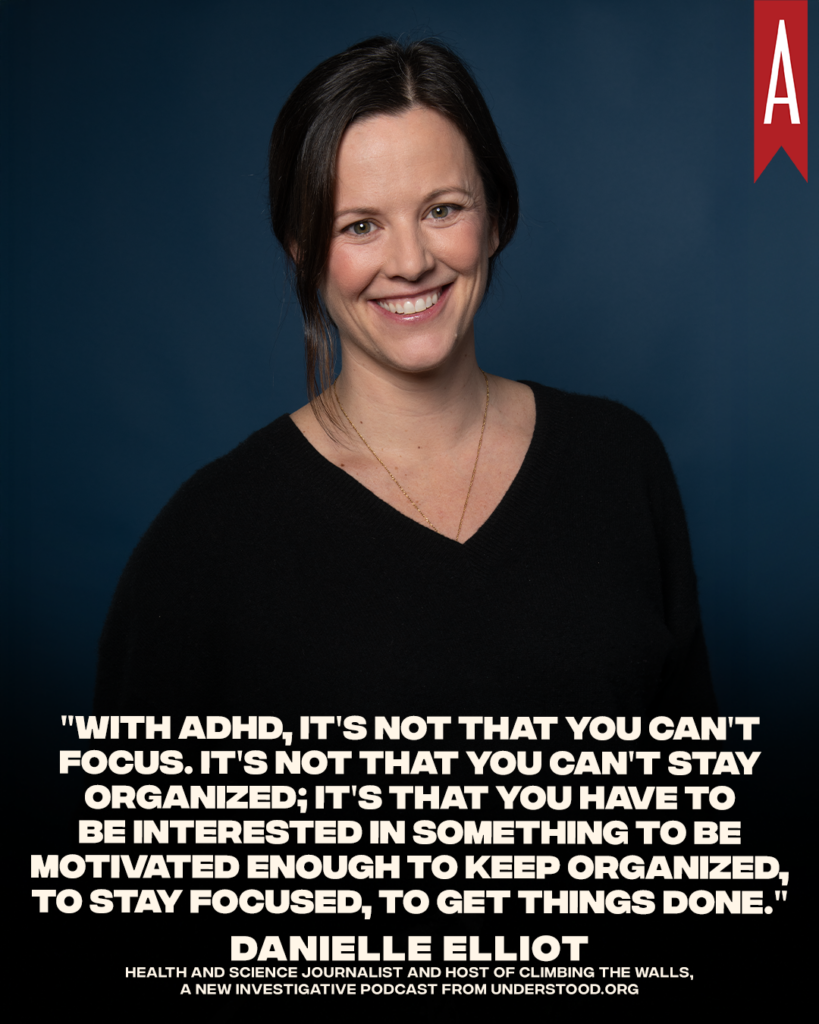
Her Agenda: ADHD diagnoses have surged among women since the pandemic. Why do you think that shift is happening now? And what do you think it tells us?
Danielle Elliot: I think the shift really picked up steam. Like you can see, the shift sort of started even pre-pandemic, but the numbers started doubling in 2020. And I think that has a lot to do with what we’re seeing about ADHD in general, which is that, like when I think of adult life, even if you’ve gone undiagnosed your whole life, you have found ways to cope and to function as an adult.
But the pandemic presented a completely new set of challenges that many women with undiagnosed ADHD, as well as women with diagnosed ADHD, had never encountered. And I think the combination of information being available through social media and kind of right there in your pocket at a time when a lot of women were saying, I don’t understand what’s happening.
That’s actually where the name of the podcast Climbing the Walls comes from. One of the clinicians who treats ADHD was receiving more emails from women than she had ever received. And they were all saying, ‘I want to talk to you about ADHD.’ Like she was saying, they were all climbing the walls. And it was because the structures, the support systems, and, if they were parents, the school systems were closed.
Everything they had relied on with the school system to help with their kids was out the window really. And then also with work, with everything, like all the routines were gone. So that’s a big reason why these conversations are happening when they’re happening right now.
Her Agenda: For women who are just starting to explore an ADHD diagnosis, what advice would you give to help them navigate?
Danielle Elliot: One piece of advice that I wish I had known when I was seeking a diagnosis a few years ago was that I sometimes feel like I sought the diagnosis because my understanding was that medication is the only form of treatment for ADHD. And I think what we’re starting to lean into more and understand more, and understood.org has so many resources about this online.
I wish I had known that medication is one tool within an entire toolbox of approaches to ADHD and ways to make life work best for you. Knowing that treatment is often multifaceted, I think that if you’re considering pursuing a diagnosis and it seems somewhat overwhelming with wait lists to get on to get an appointment with a doctor or the cost of treatment, or any of that, something to know is that there are so many ADHD life coaches. Understood.org has a true wealth of information available on the website. There are so many resources available that could help you begin to understand everything.
In pursuing the diagnosis, if cost is a major hurdle, or time and scheduling are a major hurdle, I would want everyone to know [that] a lot of the resources are available, and medication is not the only approach to ADHD.
Her Agenda: What makes Climbing the Walls different from other podcasts in the mental health space?
Danielle Elliot: My goal, in part, was to let the women be themselves and not edit them into women who sound like they don’t have ADHD. I didn’t want everyone in this show to sound neurotypical and cleaned up.
Part of what I would love to see coming out of this rise in ADHD diagnoses is normalizing behaviors that aren’t considered ‘normal.’ For example, I don’t expect everyone to speak perfectly linearly when answering questions or telling stories. One thing that’s different is that I very intentionally did not edit them in a way that you might hear interviews traditionally edited.
Everyone in this story has a story to tell. I’m going to say this not to knock podcasts that speak to experts as experts, but the experts on our show are also prominent figures in the history of ADHD, especially the understanding of ADHD in women.
So everyone in the show has a personal story to tell within this much larger story of the rise of ADHD among women.
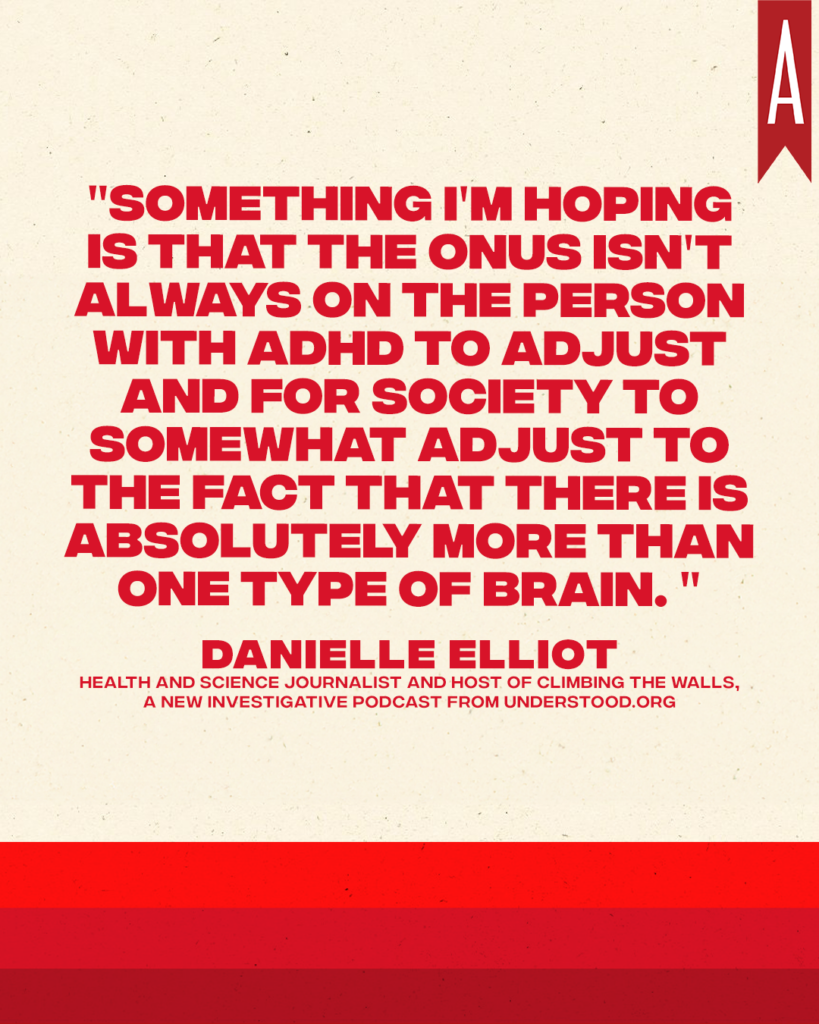
Her Agenda: As you look ahead with the podcast, what themes and stories are you most excited to explore?
Danielle Elliot: I’m interested in continuing to explore how symptoms are. I’m interested in exploring the severity of symptoms in different situations that women find themselves in and what helps to mitigate those symptoms or the severity of those symptoms.
I’m also really, really interested in episode six. The final episode of the series touches on research into hormones and ADHD, and I think that’s nascent research right now.
We need so much more of it. And I’m excited to continue following that, and I’m interested in seeing what comes out of that research, as hopefully more of it is published and funded.
Her Agenda: As more women are diagnosed with ADHD later in life, what systematic changes in healthcare, education, or media do you believe are the most urgent?
Danielle Elliot: The most urgent are two that have been urgent throughout the last 40 years, but are finally beginning to have their moment. And that’s one, believing women and what we say about how we’re feeling, and adjusting to situations.
I think a second one is funding the research that will inform policy decisions that relate to the support systems that are available to women and also the support systems that are available not just to women, but to everyone with ADHD and how to figure out support systems that are just part of life so it doesn’t always have to be on. I guess something I’m hoping is that the onus isn’t always on the person with ADHD to adjust [and] for society to somewhat adjust to the fact that there is absolutely more than one type of brain. Everyone is functioning and capable and supported and not having to take on extra burden just because their brain isn’t what’s considered neurotypical.
Her Agenda: What advice would you share with young women who are navigating ADHD, but are also looking to lead change within the media, health, or even culture?
Danielle Elliot: I think the advice would be to continue working the way that works best for you and advocating for yourself, and also trying to find work situations that allow you to maximize your intelligence and your potential, and rather than exhausting you, they will enable you to maximize your potential.
The way to create change is by proving your capability and your success by doing things slightly differently and also voicing how you’re doing things differently so that you’re sort of in the workplace voicing that I’m not forgetful, I’m just doing this in a different order because that’s the order it all has to be done in. I think there’s ways of continuing to point out, like I’ve pointed out to many bosses, but it’s sort of like I work on these four-month projects most of the time, so four to 12-month projects, but I’ll often speak to my managers and talk about the fact that I’ll get things done very quickly, but I’m not good with busy work. I think I owe that to my ADHD, but I don’t say that in conversations.
So it doesn’t mean please fill my time, like I will use my time very, very efficiently and get things done and that’s very common with ADHD, but if I’m going to get eight hours of work done in two or three hours, it doesn’t mean that a manager should feel obligated just because that’s the traditional way of thinking about a work day.
It’s just constantly advocating for yourself and pointing out your strengths to a manager. If you’re in a management position and allow people to work to their strengths rather than just following rules and standards, then this is how it’s been done.
[Editor’s note: This interview has been edited for length and clarity]

